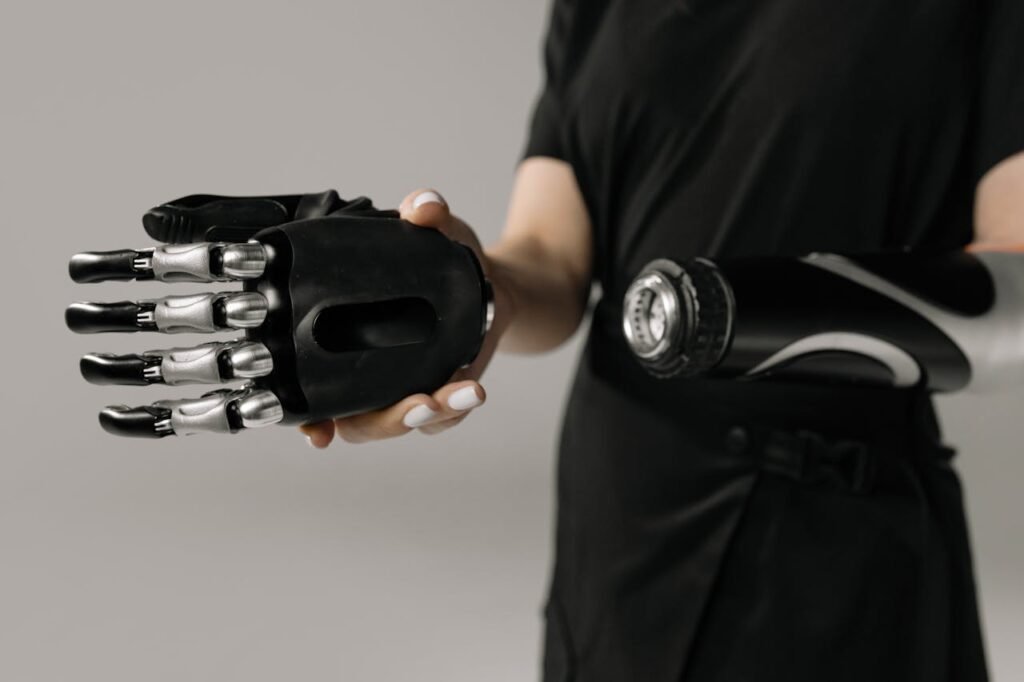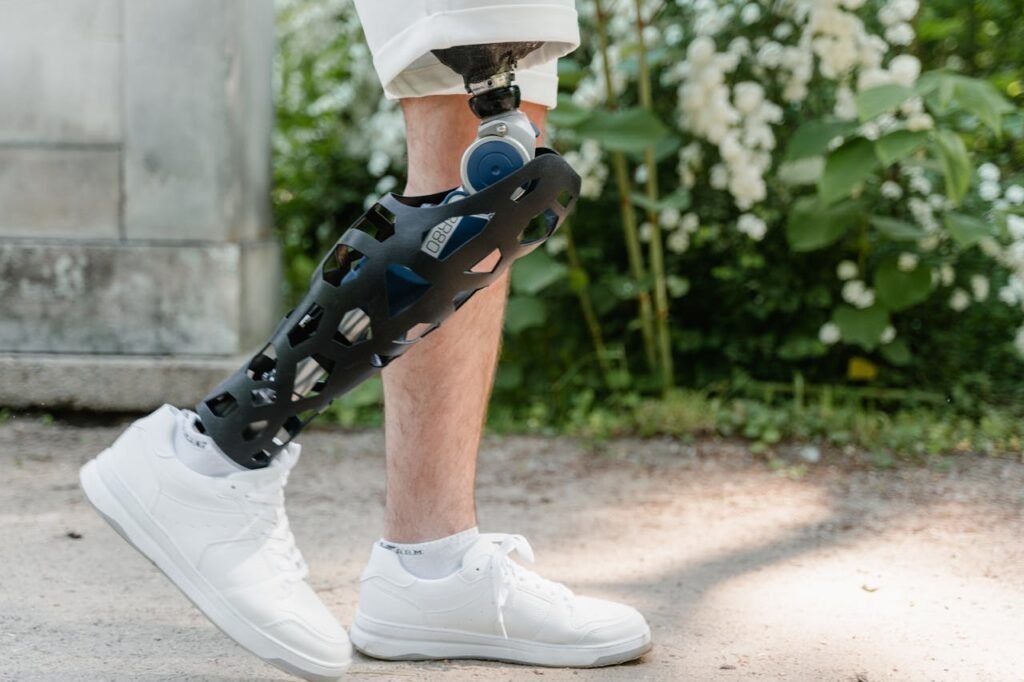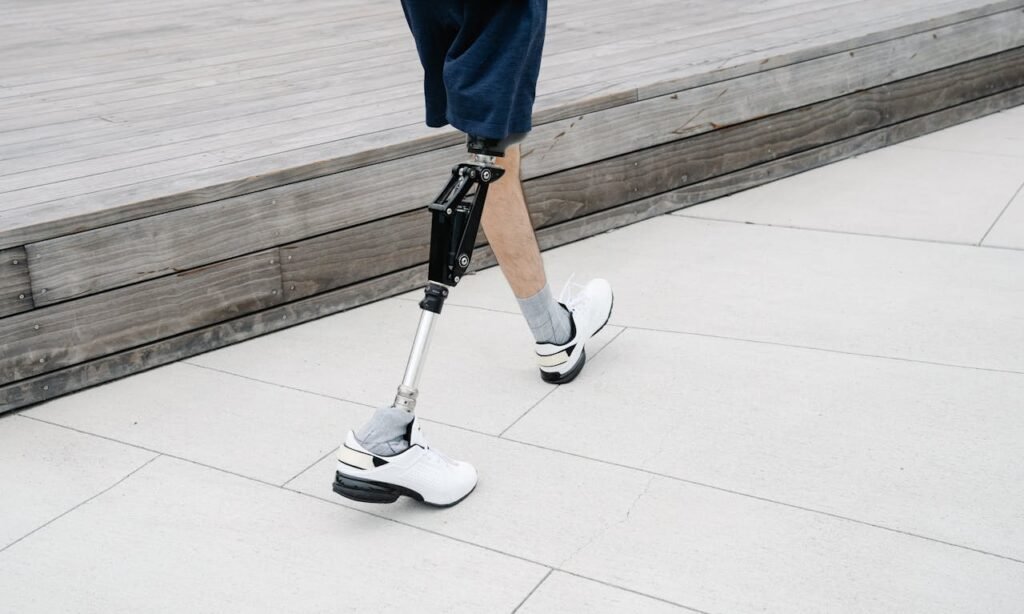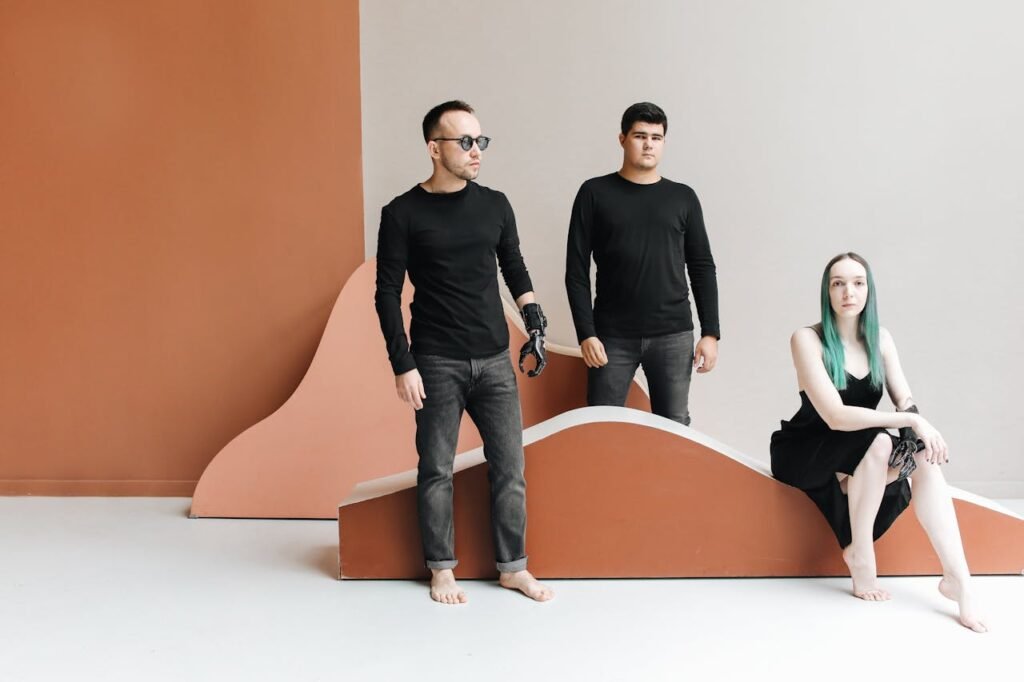Prosthetic limbs are life-changing tools, empowering individuals to regain mobility, independence, and confidence. However, the cost of prosthetics can be a major concern, particularly for those navigating the financial implications of acquiring a new limb. While affordability is essential, compromising on quality can lead to discomfort, limited functionality, and frequent repairs, ultimately affecting the user’s quality of life.
The good news is that balancing cost and quality doesn’t have to feel like an impossible challenge. With the right approach, it’s possible to find budget-friendly prosthetic solutions that meet both functional needs and financial limitations. This article explores how users and businesses can achieve this balance by focusing on innovation, strategic decision-making, and personalized solutions.
Understanding the Cost Factors of Prosthetic Limbs
The price of a prosthetic limb varies widely, influenced by factors such as materials, functionality, design complexity, and technology. Understanding these cost drivers is the first step in making an informed decision that aligns with both your budget and your needs.
Materials and Their Impact
The materials used in a prosthetic significantly affect its cost. Lightweight materials like carbon fiber and titanium are often more expensive due to their durability and comfort-enhancing properties.
Meanwhile, more budget-friendly materials, such as certain plastics or basic metals, may reduce costs but might not offer the same level of comfort or longevity.
For businesses, striking the right balance involves offering a range of materials tailored to different price points. Users who prioritize affordability can be presented with options that utilize durable yet cost-effective materials, ensuring they don’t have to sacrifice usability for price.
Functionality vs. Complexity
The complexity of a prosthetic’s design and functionality also influences its price. Advanced features such as microprocessor-controlled joints, myoelectric controls, or sensory feedback systems can add significant value—but they also increase costs.
On the other hand, mechanical prosthetics with simpler designs tend to be more affordable while still meeting essential functional needs.
For users, it’s important to assess which features are essential for their lifestyle and which ones may be optional. Businesses can help by educating users on the trade-offs between advanced and basic models, allowing them to choose solutions that align with their priorities and budgets.

Customization and Aesthetics
Customization, including tailored fittings and aesthetic options, adds another layer of cost. While some users may prioritize a prosthetic that closely matches their skin tone or allows for artistic expression, others may focus more on functionality than appearance.
Businesses can offer scalable customization options, allowing users to invest in features they value most while keeping other aspects more standard. This approach ensures that prosthetics remain accessible without compromising on individuality or performance.
Exploring Budget-Friendly Options Without Compromising Quality
Balancing cost and quality requires a strategic approach, both for users seeking an affordable prosthetic and for businesses striving to deliver value within financial constraints.
Modular Designs for Flexibility
One way to achieve affordability without sacrificing quality is through modular prosthetics. These designs allow users to start with a basic model and upgrade components over time as their needs or budgets evolve.
For instance, a user might begin with a standard mechanical joint and later transition to an advanced myoelectric component when finances permit.
For businesses, offering modular solutions not only makes prosthetics more accessible but also fosters long-term relationships with customers, as users are likely to return for upgrades and enhancements.

Leveraging Emerging Technologies
Advances in technology, such as 3D printing and digital modeling, have revolutionized the manufacturing process, making it possible to produce high-quality prosthetics at lower costs. 3D-printed prosthetics, in particular, are an excellent example of how innovation can drive affordability.
For users, this means gaining access to durable and lightweight designs that were previously cost-prohibitive. For businesses, investing in such technologies can streamline production and reduce material waste, translating to savings that can be passed on to customers.
Collaboration and Community: Reducing Costs Through Partnerships
Cost can be a significant barrier for many individuals seeking prosthetic limbs, but partnerships and community-driven solutions can bridge this gap. Businesses, non-profits, and healthcare providers all play vital roles in making prosthetics more accessible while maintaining quality.
Partnering with Non-Profit Organizations
Non-profit organizations often specialize in providing financial assistance, subsidized prosthetics, or grants for individuals in need. Collaborating with these organizations allows prosthetic manufacturers to reach a wider audience, particularly in underserved communities.
For instance, a partnership between a prosthetics company and a non-profit could focus on producing a specific line of affordable prosthetics. These devices might use streamlined designs or innovative manufacturing techniques to lower costs without compromising durability or functionality.
Such collaborations create win-win scenarios where users receive high-quality prosthetics at reduced prices, and businesses fulfill their corporate social responsibility goals while expanding their customer base.
Government and Insurance Support
Government programs and insurance policies can significantly impact the affordability of prosthetic limbs. Businesses can work with policymakers to advocate for subsidies, reimbursement plans, or tax incentives that make prosthetics more accessible.
Offering guidance to users on navigating insurance claims or accessing government support adds value to the customer experience.
For users in countries with limited healthcare infrastructure, businesses might consider providing installment payment options or offering discounts for those with financial constraints. This strategic flexibility not only builds goodwill but also ensures that cost doesn’t become a barrier to mobility and independence.
Community-Based Solutions
Community initiatives, such as prosthetic recycling programs, can further enhance affordability. These programs refurbish and redistribute previously used prosthetics, giving them a second life while significantly lowering costs for new users.
Businesses can lead or support such initiatives by providing refurbishment services or training technicians to handle used prosthetics. Additionally, creating awareness campaigns around these programs encourages users to donate or recycle their old prosthetics, fostering a sense of community and sustainability.

Educating Users on Cost-Saving Strategies
Empowering users with knowledge about how to make informed decisions is a cornerstone of balancing cost and quality. Businesses can play a proactive role in this by offering resources that demystify the process of selecting a budget-friendly prosthetic.
Helping Users Prioritize Features
Many users may feel overwhelmed by the options available, particularly when trying to balance affordability with functionality. Businesses can guide users through this process by helping them identify which features are essential for their lifestyle.
For example, a user who needs a lower-limb prosthetic primarily for indoor use may not require advanced features like microprocessor-controlled joints. In such cases, a simpler design with durable materials might be the better choice.
Clear communication about these trade-offs allows users to make confident decisions without feeling pressured to overspend.
Offering Transparent Pricing Models
Transparency in pricing builds trust and helps users plan their budgets effectively. Businesses should provide clear breakdowns of costs, including what is covered in the initial price and any additional expenses for customization, maintenance, or upgrades.
For instance, presenting a comparison between entry-level and advanced prosthetic models with explanations of their respective benefits enables users to weigh their options more effectively. Offering online tools or consultations where users can explore pricing scenarios tailored to their needs further enhances this transparency.
Innovating for Affordability: The Role of Research and Development
Research and development (R&D) are essential for creating prosthetics that deliver high quality at a lower cost. By investing in innovation, businesses can find new ways to streamline production, improve materials, and design prosthetics that cater to a wide range of users.
Simplified Designs Without Compromising Performance
R&D efforts can focus on simplifying prosthetic designs to reduce manufacturing complexity and cost while maintaining performance. For example, integrating fewer moving parts or adopting standardized components can lower production expenses without sacrificing durability or functionality.
Businesses that emphasize user testing during the design phase ensure that simplified models still meet the needs of their target audience. Sharing these insights through marketing materials or user testimonials reinforces confidence in budget-friendly options.

Expanding Access Through Technology
Emerging technologies like artificial intelligence (AI) and machine learning can further enhance the affordability of prosthetics. AI-driven design processes, for example, can optimize the use of materials and identify cost-effective production methods.
Additionally, digital platforms that connect users with prosthetists for remote consultations or virtual fittings reduce logistical costs, making the entire process more accessible. Businesses that adopt these technologies not only lower costs but also improve user convenience and satisfaction.
Long-Term Value: Balancing Cost and Quality for Sustained Satisfaction
When evaluating budget-friendly prosthetics, it’s essential to look beyond the initial price tag and focus on long-term value. A prosthetic that balances cost and quality not only meets immediate needs but also ensures sustained satisfaction, durability, and minimal future expenses. For businesses, delivering this balance involves strategic design, robust after-sales support, and user-centric solutions.
Designing for Durability and Maintenance
One of the most important factors in ensuring long-term value is durability. While some budget-friendly prosthetics might use simpler materials, they must still be designed to withstand regular wear and tear.
Businesses can achieve this by investing in testing and quality assurance during the manufacturing process. For instance, subjecting prosthetic components to stress tests simulates real-world conditions, ensuring they remain functional over time.
At the same time, maintenance should be straightforward and cost-effective. Designing prosthetics with replaceable or modular components allows users to repair or upgrade parts without replacing the entire device.
Offering maintenance packages or warranties can further enhance the appeal of budget-friendly models, giving users peace of mind about their investment.
Prioritizing Comfort and Fit
Affordability should never come at the expense of comfort. A poorly fitting prosthetic can lead to skin irritation, pain, or decreased usability, negating any cost savings. Businesses must prioritize precision in the fitting process, even for budget-conscious options.
Using technologies like 3D scanning to create customized sockets or offering adjustable components ensures that users receive a prosthetic that fits well and feels natural.
Clear communication about the importance of proper fit during consultations helps users understand why this aspect is critical, regardless of their budget.
Offering Scalable Solutions
Scalable solutions, such as modular prosthetics or customizable models, allow users to balance cost and quality over time. For example, a basic prosthetic can be enhanced with additional features as the user’s needs or budget evolve.
For businesses, this approach creates opportunities for long-term engagement with customers. Offering upgrade paths or trade-in programs ensures that users remain satisfied while generating repeat business.
Highlighting these scalable options in marketing materials or consultations reassures users that choosing a budget-friendly model doesn’t mean limiting future possibilities.
Supporting Users Through Education and Aftercare
A critical component of balancing cost and quality is ensuring that users are equipped with the knowledge and support they need to make the most of their prosthetic. Businesses that focus on user education and aftercare not only enhance satisfaction but also build lasting relationships.
Educating Users on Proper Use and Care
Proper use and care are essential for prolonging the lifespan of a prosthetic. Businesses can create resources like instructional videos, manuals, or workshops that teach users how to maintain their device effectively.
For example, demonstrating how to clean the socket, check for wear, or adjust components can help users avoid unnecessary repairs and expenses.
Additionally, offering guidance on adapting to different environments, such as navigating stairs or uneven terrain, ensures that users feel confident and capable. By investing in user education, businesses empower individuals to maximize the value of their prosthetic.
Establishing Comprehensive After-Sales Support
After-sales support is a crucial factor in ensuring long-term satisfaction with a budget-friendly prosthetic. Businesses should provide clear channels for users to seek assistance, whether through in-person consultations, online platforms, or dedicated support hotlines.
For instance, offering regular check-ups or providing access to affordable replacement parts reinforces the company’s commitment to the user’s well-being.
Encouraging feedback also allows businesses to identify and address common issues, driving continuous improvement in product design and service.
Building a Sustainable Business Model
Balancing cost and quality is not just about meeting individual user needs—it’s also about creating a sustainable business model. By focusing on affordability and value, businesses can expand their reach while maintaining profitability.
Expanding Market Access
Affordability opens doors to a wider market, including underserved communities and regions with limited access to advanced prosthetics. Businesses can leverage partnerships with local healthcare providers, non-profits, or government programs to distribute budget-friendly prosthetics more effectively.
For example, offering subsidized models through healthcare initiatives or bundling prosthetics with rehabilitation services can make them more accessible to users with financial constraints. These efforts not only increase market penetration but also contribute to social impact, enhancing the company’s reputation.

Emphasizing Ethical Manufacturing
Affordability should never come at the expense of ethical practices. Businesses must ensure that cost reductions are achieved through innovation and efficiency rather than compromising on fair labor practices or environmental responsibility.
Adopting sustainable materials, reducing waste, and optimizing production processes demonstrate a commitment to quality and ethics. Communicating these efforts transparently builds trust with users and stakeholders, reinforcing the company’s credibility in the prosthetics industry.
Empowering Users Through Innovation and Engagement
The ultimate goal of creating budget-friendly prosthetics is to empower users with devices that enhance their independence, mobility, and quality of life. For businesses, achieving this goal requires a focus on innovation, user engagement, and a commitment to continuous improvement.
By understanding and addressing the unique needs of budget-conscious users, companies can create products that are both accessible and impactful.
Driving Innovation in Affordable Prosthetics
Innovation plays a central role in balancing cost and quality. Advances in material science, design, and manufacturing technologies have made it possible to produce prosthetics that are both affordable and highly functional.
For instance, 3D printing allows businesses to create customized prosthetics at a fraction of the cost of traditional methods, while materials like high-strength polymers provide durability without the expense of metals like titanium.
Businesses can further innovate by integrating basic smart features into budget-friendly prosthetics. While high-end models may include advanced sensors or AI-driven controls, even simpler technologies—such as adjustable tension settings or pre-set grip patterns—can greatly enhance usability.
Highlighting these innovations in marketing materials and user guides demonstrates that affordability doesn’t mean sacrificing progress.
Engaging Users in the Design Process
Involving users in the design process ensures that budget-friendly prosthetics meet real-world needs effectively. Businesses can achieve this by soliciting feedback from current users, conducting surveys, or organizing focus groups that explore the challenges faced by those seeking affordable options.
For example, feedback from users might reveal the need for lightweight designs that prioritize comfort or highlight specific pain points, such as difficulties with socket fit or maintenance.
Incorporating these insights into product development creates prosthetics that resonate more deeply with users, improving adoption and satisfaction rates.
Engaging users in this way also fosters a sense of community and partnership, as individuals feel their voices are heard and valued. Sharing stories of user contributions to product design through blogs, videos, or social media can further enhance brand loyalty and awareness.
Providing Tailored Solutions for Diverse Needs
No two users are alike, and budget-friendly prosthetics must cater to a diverse range of requirements. Some individuals may prioritize durability for active lifestyles, while others might value lightweight designs for daily use.
Businesses can address this diversity by offering customizable features, such as modular components or adjustable settings, that allow users to tailor their prosthetics to their specific needs.

For example, a lower-limb prosthetic might include an interchangeable foot that transitions between a flat indoor design and a more rugged outdoor model. Similarly, upper-limb prosthetics could feature adjustable grip strength or attachments for specific tasks like typing or cooking.
Providing these options ensures that budget-friendly prosthetics remain versatile and functional, even for users with varying demands.
Reinforcing Confidence Through Community and Support
Affordability can sometimes lead to concerns about quality or reliability, especially among first-time users. To address these concerns, businesses must go beyond selling a product and create an ecosystem of support that reinforces user confidence.
One way to achieve this is by building a community of users who share their experiences and advice. Online forums, social media groups, or local meetups can provide valuable platforms for users to connect, learn, and inspire one another.
Highlighting success stories, such as individuals who have excelled with budget-friendly prosthetics, can motivate others and showcase the device’s potential.
Additionally, businesses should ensure that users have easy access to expert support throughout their journey. Providing responsive customer service, user-friendly resources, and regular check-ins demonstrates a commitment to their well-being and fosters trust.
Conclusion
Balancing cost and quality in prosthetic design is a challenge—but one that offers immense rewards for both users and businesses. For individuals, it means access to devices that restore independence and improve daily life without financial strain. For businesses, it’s an opportunity to reach new markets, foster loyalty, and make a meaningful social impact.
By investing in innovation, leveraging emerging technologies, and engaging directly with users, businesses can create budget-friendly prosthetics that deliver functionality, comfort, and durability. These solutions not only meet immediate needs but also empower users to embrace their potential and pursue their goals with confidence.
At its core, the journey of balancing cost and quality is about much more than affordability—it’s about creating opportunities, fostering inclusivity, and building a future where mobility and freedom are accessible to all.



